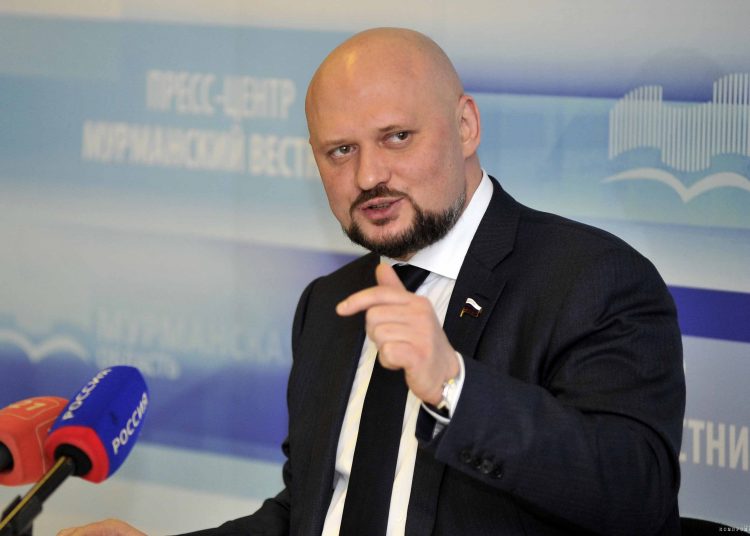Alexey Lyashchenko cashed out thefts
The Investigative Committee opened a new criminal case under the article on especially large-scale group fraud (Part 4 of Article 159 of the Criminal Code) against employees involved in the repair of warships Novik groupfollows from decisions of the Basmanny Court on the selection of a preventive measure for the former general director of JSC ASK Rosmed Alexander Kuznetsov.
The document states that a criminal case was initiated “in relation to the theft of funds from OJSC PG Novik under contract agreements for service and maintenance of ships and vessels of the Russian Navy.” Kuznetsov was placed under arrest.
According to Kommersant, seven people were involved in the case, including the former general director of the group, ex-State Duma deputy Alexey Lyashchenko.
Meanwhile, according to the Investigative Committee, in those years Novik was already in a “pre-bankruptcy” state, and General Director Lyashchenko decided to take advantage of the trust of his partners for personal enrichment. In the spring of 2014, the case says, he created a criminal group, which involved two female financiers of Novik and an entire company of insurers. The fraudulent scheme they chose, according to investigators, turned out to be simple and effective – the shipbuilders began to spend the advances given to them on insurance, and fulfill the orders they received only to the extent that was necessary to disguise the scams being committed. In total, the alleged fraudsters, according to investigators, transferred 43,546,000 rubles to insurers. All these funds, as follows from the indictment, were cashed through “fly-by-night” companies affiliated with the defendants, which did not conduct real business activities, and were used by them at their own discretion.
According to the investigation, the publication learned, the Novik group in 2014–2016 received advances from ship repair companies, this money was transferred to insurance companies, which cashed it out and returned it to the suspects, minus interest. At the same time, the group did not complete the paid work on repairing warships, the investigation claims.
According to investigators, the suspects in fraud transferred a total of 43,546,000 rubles to insurers. According to Kommersant, those involved in the case are being checked for involvement in other, larger-scale scams.
The Novik industrial group was engaged in the maintenance and repair of submarines and other ships of the Navy. The group went bankrupt in 2019.
In January last year, Lyashchenko was arrested in absentia in connection with a case of non-payment of wages to Novik employees. According to Kommersant, the group’s debt to employees exceeded 200 million rubles, and the case was initiated after bankruptcy. In December, the Moscow City Court overturned the decision on the arrest in absentia.
In addition, in April 2019 the publication reported about the verdict of the Moscow garrison military court to captain of the third rank Kirill Khlystov. He was sent to a maximum security colony for nine years for signing acts of acceptance of repair work that had not been carried out on 57 ships, including the nuclear submarine Daniil Moskovsky. Khlystov was also found guilty of receiving bribes from the management of the Novik group.
Investigators found that Lyashchenko instructed the financial director of Novik PG OJSC, Alexander Sozansky, to create a company to work within the framework of the state defense order. At the end of March 2011, Lenremproekt LLC was registered in St. Petersburg, the work of which was to be accepted by the 868th military representative office, where Khlystov worked.
Lenremproekt, according to the investigation, did not perform the work. The contractor’s management cashed this money and returned it to Sozansky, who gave Khlystov about 2% for each contract. The financial director of Novik, Alexander Sozansky, then became involved in a criminal case of fraud. He spoke about the frauds of 2011–2014, after which Khlystov was detained.
Lyashchenko stated that until 2016, Novik was profitable and fulfilled all obligations under contracts in the interests of the Ministry of Defense, but in 2016, the military acceptance office accredited under Novik stopped issuing financial acts for work already completed.








